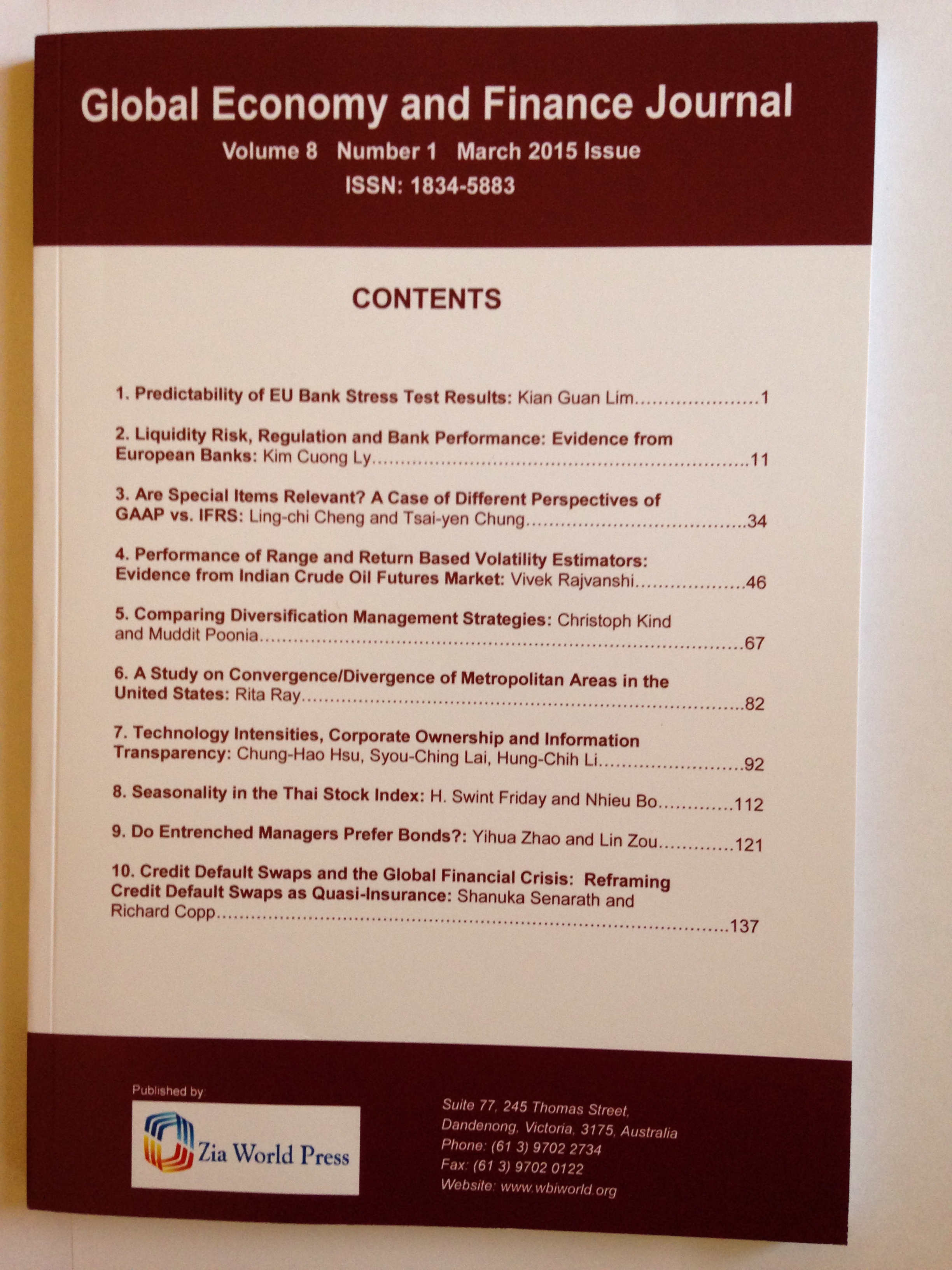Pages
1 – 23
Author: Kevin I. Okoeguale
This paper reexamines the link between internal governance structure
(board structure) and acquirer/bidder performance, controlling for the
disciplinary role of the market for corporate control based on the level of antitakeover
provisions (ATPs), using a data sample of mergers and
acquisitions from the 2000s, a period that witnessed significant board
structure reform – the introduction of minimum board independence
requirements to the NYSE and NASDAQ listing rules following the
enactment of the Sarbanes-Oxley Act of 2002. In general, based on the full
data sample, the evidence presented in this paper fails to refute the view
that firms choose their internal governance structure (board structure) in a
value-maximizing way; the mandated changes to board structure, in the
2000s, may have done little to improve the effectiveness of bidders’ internal
governance structure. On average, bidders' anti-takeover provisions show
no significant effect on the returns to bidders, and fail to significantly affect
the lack of any significant relationship between board structure – board size
and board independence – and the returns to bidders. However, for the subsample
comprising bidders with high levels of anti-takeover provisions,
board independence is found to be negatively related to the returns to
bidders with high levels of ATPs. One interpretation of this finding is that the
effectiveness – benefits relative to the costs – of independent boards
diminishes at high levels of anti-takeover provisions. For the sub-sample
comprising bidders without classified boards, board size is positively related
to the returns to bidders, indicating that the benefits to increasing board size
appears to outweigh the costs for bidders without a classified board
structure.
Pages
24 – 40
Author: Rahmah Ismail Noorasiah Sulaiman and Mohd Fahmy-Abdullah
The process of globalization is happening so quickly thereby leading to rapid changes, particularly in communication and information technology. This situation has caused the economy to become interdependent. Basically, the process of globalization will improve efficiency and productivity of economic activities. However, the process of globalization may have a positive or negative effect on the TFP growth for different economic sectors. This paper aims to investigate the effect of globalization on TFP growth of the construction sector based on the data from the Construction Survey Malaysia collected by the Department of Statistics Malaysia. The analysis utilizes panel data of 1990-2009 for four construction subsectors, namely, residential buildings, non-residential buildings, civil engineering and special construction activities. TFP growth is obtained from DEA-Malmquist approach and this variable is used as dependent. The globalization indicators like foreign direct investment (FDI), foreign workers and economic openness are used as independent variables in the TFP model. The static panel data approach is adopted in running the models. The results show that all the globalization indicators positively and significantly affect the TFP growth of the construction sector.
Pages
41 – 57
Author: Mohammad Elian
This paper tests for the factors determining the diffusion of off-balance sheet businesses within the context of emerging markets. The pooled balanced panel data model has been applied on a large sample of banks over the period 1997-2015. For the six GCC countries considered, though the estimates conclude differences among the regressors, however, the targeted determining factors contribute significantly in influencing OBS businesses in several terms. As capital market perspective, the findings indicate the requisite to develop the derivatives market in the GCC region, while prudential authorities have to provide more spotlight on banks asset/liability management practices where banks need to re-assess their OBS positions as part of their overall portfolio management strategies. This paper contributes to the literature by empirically testing for the OBS determining factors within an emerging market settings, likewise extending the empirical literature by considering not only banks-specific factors but also general macroeconomic conditions and regulatory variables attributes.
Pages
58 – 71
Author: El Mehdi Ali Griguiche
The purpose of this paper is to study major changes in Tunisian monetary policy implementation conditions, and their effects. It focuses on the role of the central bank as a strategic participant in the finance of the economy, and the recycle of saving into investment. It aims to analyze new conditions of the efficiency of the settlement system through central bank balance sheet and its impact, not only through autonomous and discretionary factors, but also through liquidity factors of operators other than banks.

